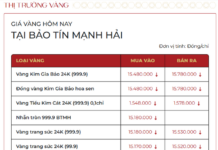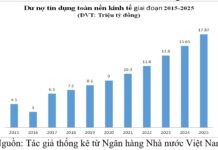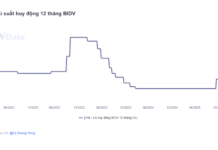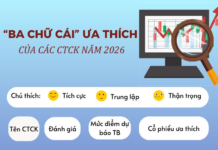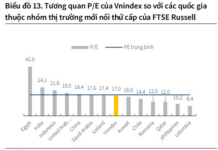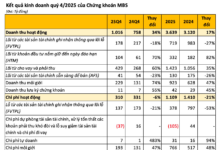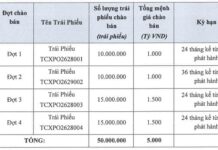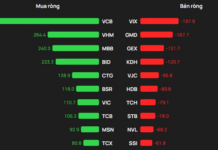
On February 22nd, the International Finance Corporation (IFC) and the World Trade Organization (WHO) released a report entitled “Trade Financing in the Mekong Region.” (Photo: Vietnam+)
|
According to representatives from the International Finance Corporation (IFC) and the World Trade Organization (WTO), improving access to trade financing at reasonable costs could increase Vietnam’s import and export turnover by 6% and 9% respectively. This means that the total value of goods traded could increase by more than $55 billion per year.
This information was shared in the Research Report “Trade Financing in the Mekong Region” released by these two organizations on February 22nd.
The IFC representative stated that this is the second study in a series of surveys on trade financing in different regions, the first being a survey on West Africa.
Specifically, the study delved into analyzing the trade financing ecosystem in Vietnam, Cambodia, and Laos, providing deeper insights into solutions for exporters and importers to actively participate in international trade with more effective support from financial institutions.
According to the report, increasing coverage is even more important than reducing the cost of trade financing. Additionally, the study highlights that domestic trade financing in Vietnam is not only uncommon but also high cost, fragmented, and limited to providing basic services.
In 2022, Vietnamese banks only provided trade financing for 21% of the country’s total import and export turnover worth $731 billion. It is noteworthy that these banks mainly support domestic companies in regional trade rather than large multinational companies involved in global trade. Meanwhile, many subsidiaries of these multinational companies in high-growth and high-value sectors (such as electronics and textiles) rely less on domestic trade financing (acting as intermediaries).
Therefore, Thomas Jacobs, Country Director of IFC in Vietnam, Cambodia, and Laos, pointed out that Vietnam’s domestic trade financing currently focuses on domestic producers. Thus, expanding the scope of trade financing will not only enhance the competitiveness of export-oriented businesses but also promote production, enhance global supply chain integration, and evenly distribute the benefits of trade among domestic producers.
According to exporters and importers, Vietnamese banks have high requirements for collateral and complex approval procedures. These are two main reasons why exporters and importers do not seek support from banks.
In terms of supply, the report states that in 2022, Vietnamese banks rejected an average of 12% of trade financing requests, mostly from small and medium-sized enterprises. The value of unmet demand amounted to approximately $20.3 billion. The reasons for rejection are believed to be the lack of collateral and high credit risk.
In light of this reality, the report recommends that Vietnam develop new tools, such as supply chain financing and innovative digital services, to reduce costs and improve access.
To achieve this, FIC experts believe that Vietnam needs to improve its legal framework to address requirements for collateral, digital transactions, central bank conditions, and accountability framework. Additionally, the report also proposes to enhance the awareness of small and medium-sized enterprises and domestic suppliers about trade financing access.
IFC also shares that in the fiscal year 2023, the organization has committed a record $43.7 billion investment in private businesses and financial institutions in developing countries. The goal is to leverage the power of the private sector to end extreme poverty and promote shared prosperity as economies face the impact of dual global crises.
Hanh Nguyen







